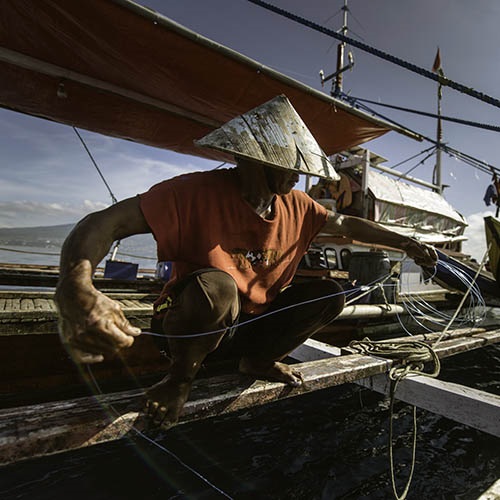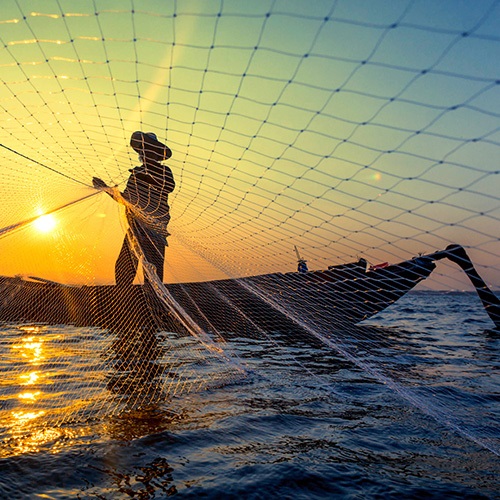University of Windsor and The Greenland Halibut Fishery
Amount awarded: £50,000
This project is developing criteria to help test the health of Greenland sharks and quantify mortality through tagging animals with monitoring devices.
The research from the University of Windsor's Hussey Lab is also exploring practices to reduce bycatch and develop ways to safely handle and release these sharks.
At present, survival rates of species caught and put back are largely unknown. This makes it difficult to assess the mortality rate resulting from bycatch and make decisions about what is acceptable future bycatch rates.
The Greenland shark is a top predator that grows up to five metres and lives for hundreds of years. Because sharks are slow to reproduce, they can be especially vulnerable to accidental catch by fishers.
The Greenland halibut trawl and gillnet fisheries off the east coast of Canada recently became MSC certified. A condition of their certification is to gather more accurate data on bycatch and help assess the status of the Greenland shark population in the fishery area.
Fishing industry partners invaluable in project success
Despite Covid-19 travel restrictions and delays in the manufacturing of tags, the researchers have successfully collected their first season of data. When researchers couldn’t get to the boats, they trained the fishing crews and onboard observers to tag the sharks for them. With workshops not possible either, industry partners were provided with a detailed instruction manual containing photographs demonstrating the method and data to collect.
Delays to the project start date because of the pandemic, meant that only 10 out of the 20 planned pop-up satellite archival tags were used. These specialised tags can remotely report data when they are automatically released, which means the shark doesn’t need to be recaptured again – as with older tagging methods. A total of 10 tags have been deployed throughout 2020, with 8 tags successfully reporting data. While data is being analysed, a second and final tagging season will continue shortly, with a total of 36 tags expected to be deployed throughout May-Dec 2021.
Safely handling and releasing Greenland sharks
Development of a safe handling and release guide for shark and skate bycatch is also currently underway. The researchers are working with at-sea fisheries observers to understand how these species are currently encountered and handled in order to customise their recommendations for safe handling to best suit fisheries in the region.
The researchers are working closely with the fishing industry stakeholders and representatives from federal and territorial governments as part of a Greenland shark working group. This will be used to help to share their findings and recommendations for all fisheries that come into contact with Greenland sharks in the region.
“There are still many unknowns about the basic biology, physiology, ecology, and behaviour of this understudied and long-lived deepwater shark. I’m excited to receive funding for this project that will help us understand the impact encountering fishing gear may have on local populations.”
University of Windsor
Find out more

Our impact projects
Discover projects supported through the Ocean Stewardship Fund that are helping to grow sustainable fishing worldwide.

The Ocean Stewardship Fund
The Ocean Stewardship Fund offers grants to both MSC certified sustainable fisheries and improving fisheries.
